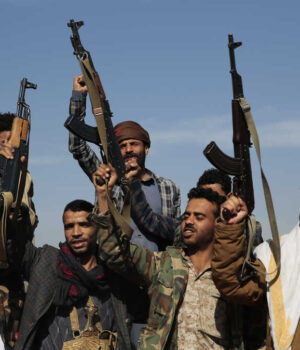
Written by Hannah Guanti
The United States military has retaliated against the Iran-backed militia group responsible for the January 28 drone strike in Jordan. Earlier this week, the U.S. carried out a drone strike in Baghdad, killing a senior member of the group responsible- Kataib Hezbollah.
The attack on January 28, killed three U.S. soldiers stationed at outpost, Tower 22. The senior member killed was responsible for the planning and participated in this specific attack and numerous others. Following the attack, President Biden has issued a clear response.
“If you harm an American, we will respond,” he said.
Despite his willingness to retaliate, Biden has been strategic in his actions against Iran directly. He has yet to challenge their sovereignty and target groups within Iran’s borders. International policy experts ascertain any action of the sort could escalate an already tense relationship. In line with this, the U.S. has currently been completing proxy attacks on the Iran backed groups.
These attacks are one part of the larger conflicts occurring in the Middle East. The conflict between the Palestinians, Hamas, and Israel has extended into other states. Many Middle Eastern countries oppose the U.S. involvement in the region and its support of Israel. Iran, a vocal supporter of Palestinian statehood, is one of the countries staunchly opposed to the U.S. military presence.
Research has suggested that groups in Iraq and Syria including Kataib Hezbollah may be ceasing attacks on the U.S. following the strong response this week.



